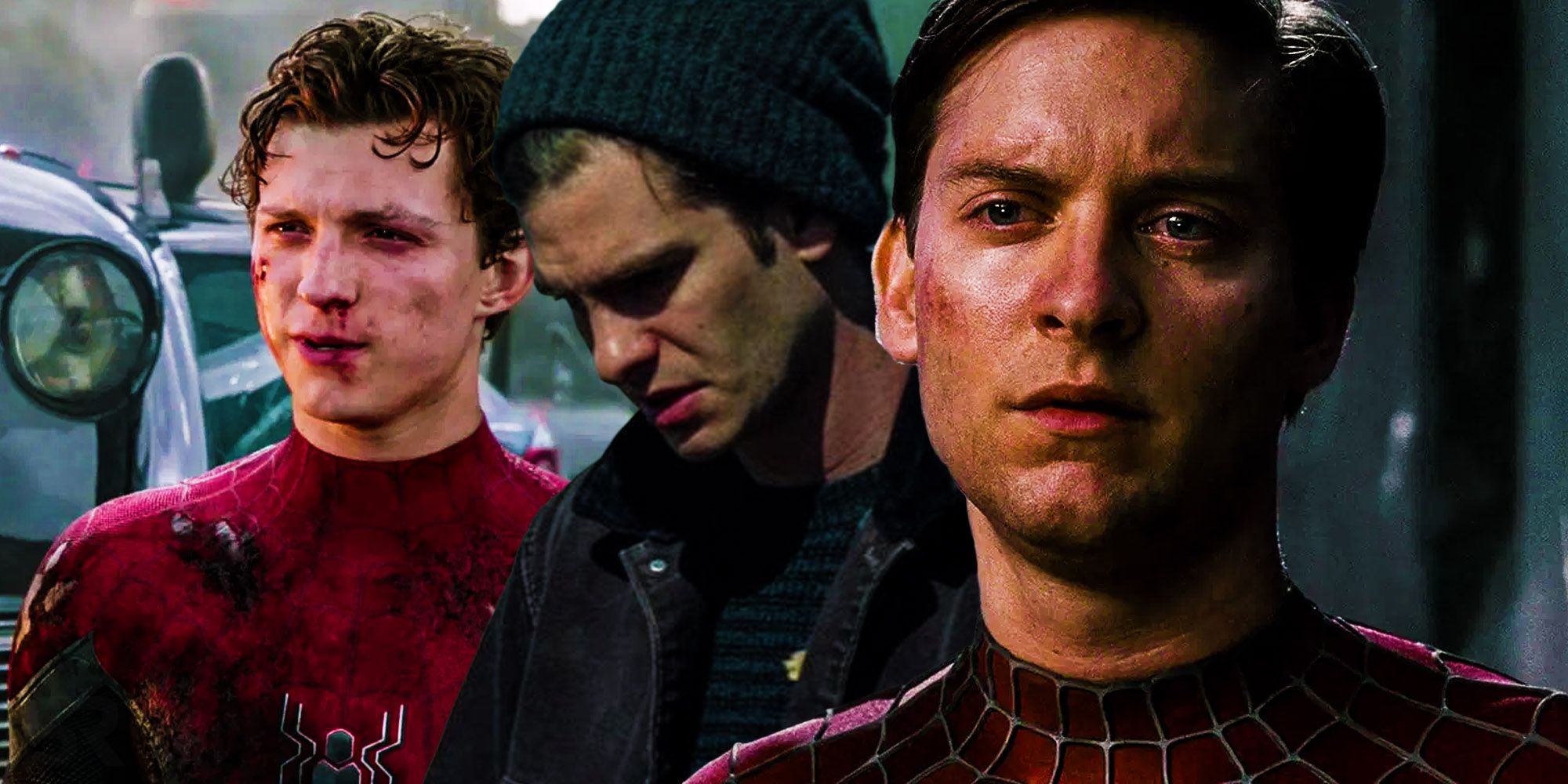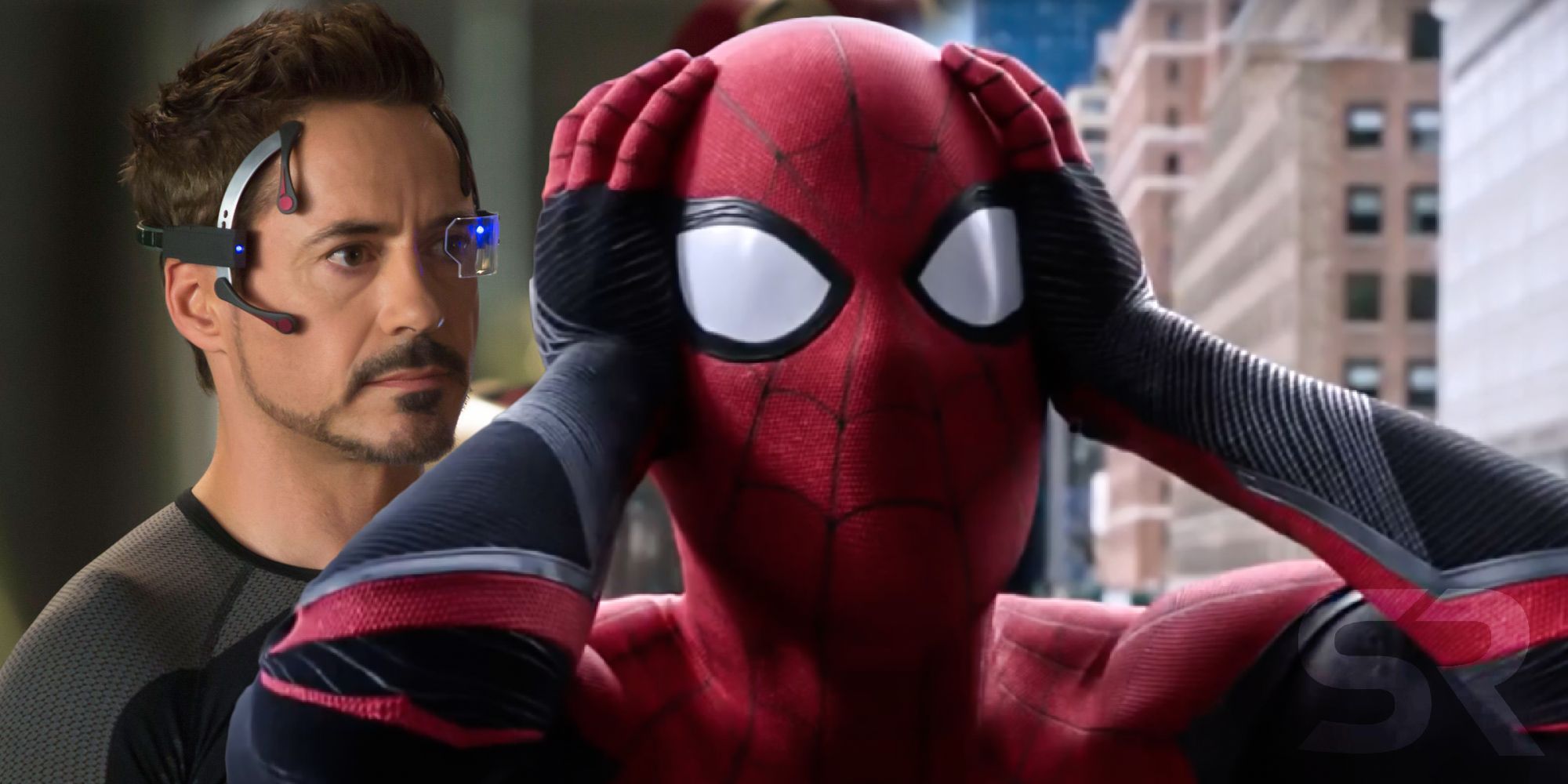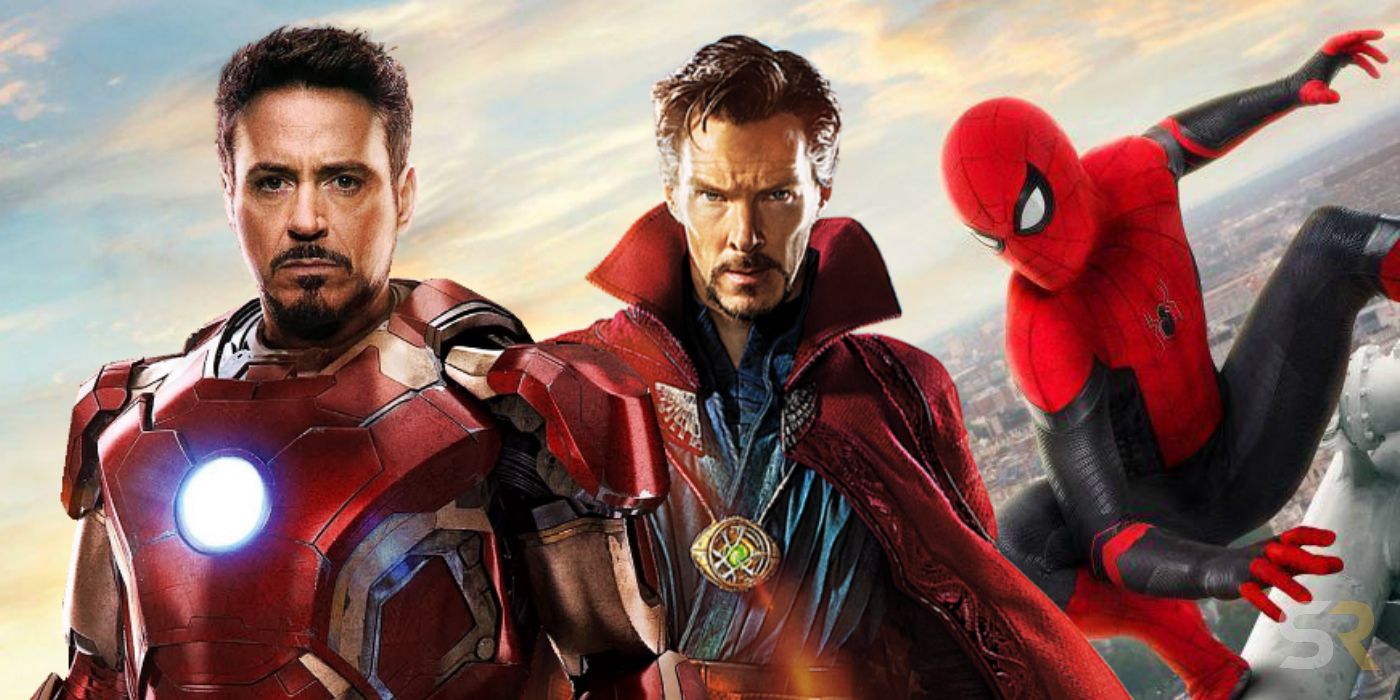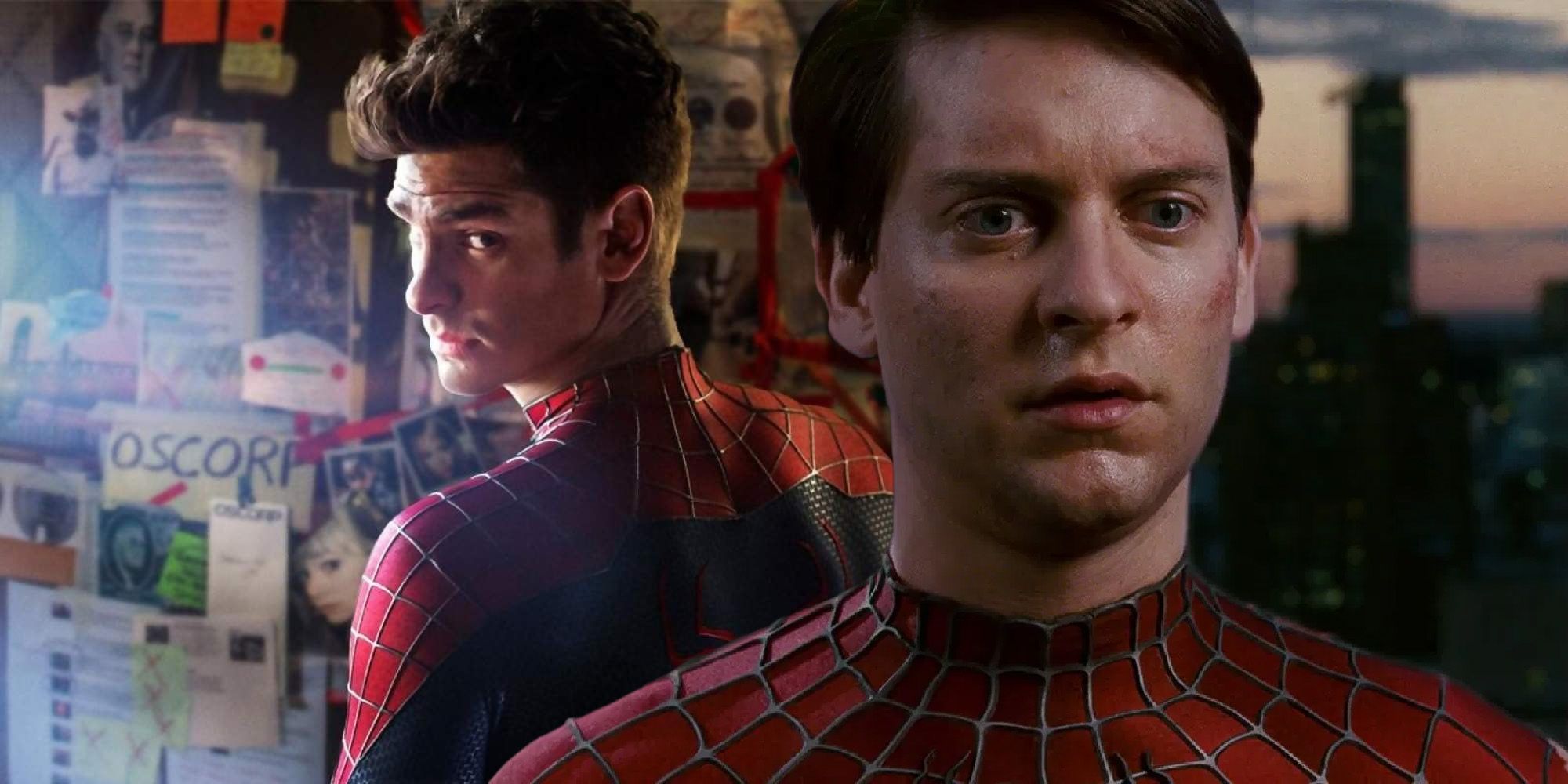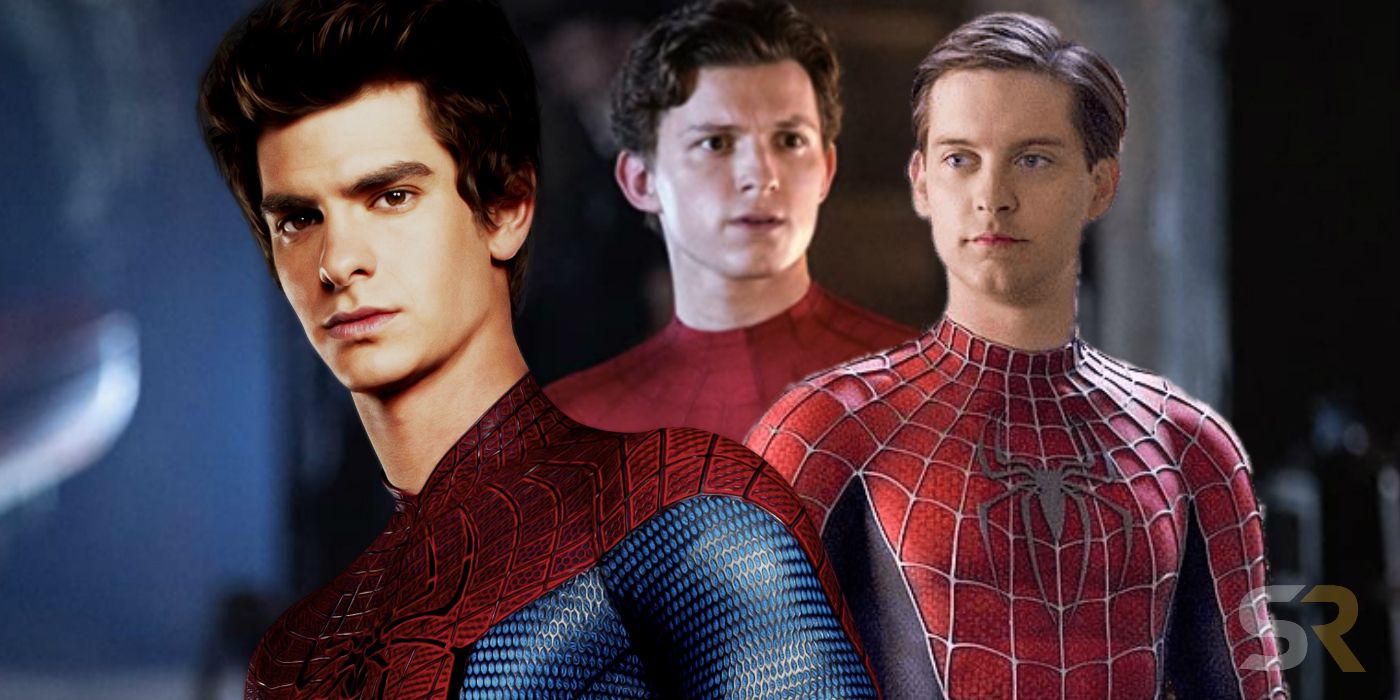Spider-Man: No Way Home will supposedly involve Multiverse versions of different Peter Parkers who could become the best mentors for the MCU's Spider-Man. The threequel to Tom Holland's franchise has a lot going for it as it wraps up the trilogy. Not only does Peter have to deal with the fallout from Spider-Man: Far From Home where the web-slinger's secret identity was outed, but he also has to clear his name. Since Mysterio framed Spider-Man for his murder, the world now believes that Spidey is a danger to society. But the third installment will also, in one way or another, see the MCU further explore the Multiverse that will be a big part of Phase 4. Benedict Cumberbatch's Doctor Strange will be involved with Spider-Man: No Way Home, but the hype doesn't stop there.
Alfred Molina, who played Doctor Octopus in Sam Raimi's Spider-Man 2, is set to play the iconic Spidey foe once more, even though it's unclear if it's his previous iteration or a new one. The same applies to Jaime Foxx who will be getting another chance to play Electro after portraying him in Marc Webb's The Amazing Spider-Man 2. However, rumors have also suggested that Molina and Foxx won't be the only past Spider-Man actors to return from the other franchises. For months it's been rumored that Tobey Maguire's and Andrew Garfield's respective incarnations of the Marvel hero will be showing up as part of the Multiverse angle. While Marvel Studios and Sony Pictures are understandably keeping everything about Spider-Man: No Way Home under wrap, their involvement hasn't been officially confirmed or denied at this point.
Only time will tell if Maguire and Garfield are popping up as the past Spider-Men in the upcoming installment. Given that Molina and Foxx are part of it, Spider-Man: No Way Home is definitely including the Multiverse to some degree when it comes to the past franchises. Should they truly be reprising their versions of Spider-Man, it would be one of the best things to happen to Holland's MCU iteration. Not only does it become a spectacular way to wrap up the Spider-Man trilogy, but it would finally give Peter the best mentors that he always needed, by being his own hero, figuratively and literally.
Iron Man Overshadowed Most Of MCU's Spider-Man Saga
The biggest problem with the Spider-Man franchise in the MCU is the increased presence of Tony Stark, a.k.a. Iron Man. While Peter was introduced into the larger Avengers world through Tony, Iron Man became a big component of Spider-Man's journey. Not only does Tony provide Peter with his suit and tech, but his mythology influenced the Spider-Man film series. In Spider-Man: Homecoming, the movie's main villain Vulture was a result of Iron Man's actions as the MCU introduced Adrian Toomes. In Spider-Man: Far From Home, Mysterio is another figure of Tony's past where he sabotaged Quentin Beck's career. Even with Tony being dead after Avengers: Endgame, Iron Man's shadow has stayed alive throughout the MCU's Spidey journey.
While the Spider-Man installments have had their strengths, the MCU has long neglected the most important factor in Peter's character. Spider-Man may be one of the Marvel Universe's most powerful heroes, but his incredible gifts are not what define him. Peter has, since the character's inception, been one of Marvel's everyday, working-class citizens. Spider-Man may have all these amazing powers, but that doesn't always help Peter as a regular person. Because of how much the MCU has included Iron Man in its Spider-Man stories, Holland's character hasn't had the opportunity to stand on his own. The downside of Spider-Man: Far From Home was how much the plot focused on Peter having to somehow live up to the idea that Spider-Man would the next Iron Man.
Spider-Man Doesn't Need Avengers As His Mentors
Doctor Strange will be the latest Avenger that becomes part of Peter's journey in Spider-Man: No Way Home. Even though his primary function is likely for the Multiverse purpose, this still feels like the franchise's way of inserting a new mentor for Peter. The Avengers has and always will be a great resource in Spider-Man's life, there is no denying that. However, after Tony's presence clouded the first two movies, it's repetitive to have Spider-Man: No Way Home replace Iron Man with another Avenger. Regardless if Doctor Strange is meant to flesh out the Multiverse for the MCU, it's not like he's the only Marvel character that could have done that in Peter's coming story.
Something the MCU's Spider-Man hasn't had a true shot at is the sense of giving Peter his own independence. That applies to the execution of Spider-Man's villains as well as connecting Peter so heavily to Tony's story. It's not a bad thing that Spider-Man is in the MCU, because it was something that for decades seemed impossible. But just like how Spider-Man is in the Marvel Comics universe, the MCU should allow Peter to be able to stand on his own. Just because he's in the MCU doesn't mean that they should forget about Spider-Man having his independence simply because of his age. By having Doctor Strange enter the third Spider-Man installment, it once again comes off as the MCU thinking that Peter always needs the Avengers to guide him.
Why Maguire & Garfield's Traumatic Spider-Man Arcs Matter
Holland became the latest live-action version of Spider-Man quickly after Garfield's franchise ended. But while Holland's iteration got to be an Avenger, it doesn't negate Garfield and Maguire's legacies as Spider-Man respectively. In fact, their arcs might be more traumatic in comparison to the MCU's Spider-Man. The MCU's Peter may have been affected by Thanos's snap, but that act was ultimately undone. For Maguire and Garfield, however, they never had an Infinity Gauntlet that could undo the damage in their lives. Throughout Raimi's trilogy, Peter dealt with losing not just Uncle Ben, but also his best friend Harry Osborn whose final action in life was sacrificing himself for Spider-Man. Maguire's Parker had to also deal with the complexity of having fought his best friend's father as Norman was the Green Goblin he couldn't save. Spider-Man 2 is also crucial to Maguire's incarnation of Peter when he was struggling with his powers.
Garfield's version in The Amazing Spider-Man series had just as much of a traumatic evolution, if not even darker. While he also loses Uncle Ben, Peter has to struggle with his parents' mysterious past from before he lost. While Garfield's Peter isn't forced to see his Harry die, the Osborn son instead became a nemesis by taking on the Green Goblin identity himself. However, the darkest moment came in The Amazing Spider-Man 2 when they adapted Gwen Stacy's historical death as Peter didn't manage to save her. Holland's Peter did lose his Uncle Ben, but his death and the impact on Peter's life have barely been explored. Tony's death was made a bigger deal and while it absolutely has an emotional impact on him, it didn't prevent Iron Man's presence in Peter's following film. So, in comparison, Maguire and Garfield's Parkers have had to go through more pain and suffering, thus their trauma helped those Spider-Men grow as heroes in the past franchises.
Multiverse Parkers Can Give Holland's Spider-Man Trilogy A Worthy Ending
In summary, Holland's Spider-Man may have gotten to do more than his predecessors, but Maguire and Garfield's iterations have more development and substance. Because they never had an Avenger in their lives, their Parkers were enabled to go through more challenges that would help them evolve as the Spider-Man of their universes. But this is where Spider-Man: No Way Home can finally bring in the idea of Peter starting to stand on his own. Depending on what the story is, having Peter meet alternative versions of himself across the Multiverse will be an experience that can be life-changing. Who better to help the MCU's Spider-Man develop as a character than Spider-Man himself, even if it's in the form of two doppelgangers? Imagine Peter's reaction if he learned that on Maguire and Garfield's worlds, they had to be their own heroes without any resources like the Avengers or Iron Man.
Obviously, Spider-Man: No Way Home won't be the end of Holland's run in the MCU as a sequel trilogy is more than likely to happen. That's why the three installments can wrap up the concept of Peter always having another hero present in his story. By using Maguire and Garfield's Spider-Men to help Peter see what it's like to be the web-slinger in a different light, it can pave the way for how the sequel trilogy can proceed with his character growth. That also goes for Spider-Man's future MCU adventures as he'll soon be entering adulthood and leaving the teenage life behind. But besides the lessons he could learn from his doppelgangers, having three Peter Parkers unite would be a big finale to this trilogy.
Holland's Spider-Man getting character development by meeting Multiverse versions of himself would be equivalent to when Grant Gustin and Ezra Miller's Flashes met in Crisis on Infinite Earths. Their Crisis moment was obviously a lot shorter since it was just a cameo, but those quick exchanges between Gustin and Miller gave the DCEU's Flash a positive boost nonetheless. Arrowverse's Barry basically got to name his cinematic counterpart as Miller's DCEU Flash had never heard the name "the Flash". If Spider-Man: No Way Home does it right, Holland's character could go to new lengths by being given Maguire and Garfield's Spider-Men as the best mentors in his entire MCU journey.

